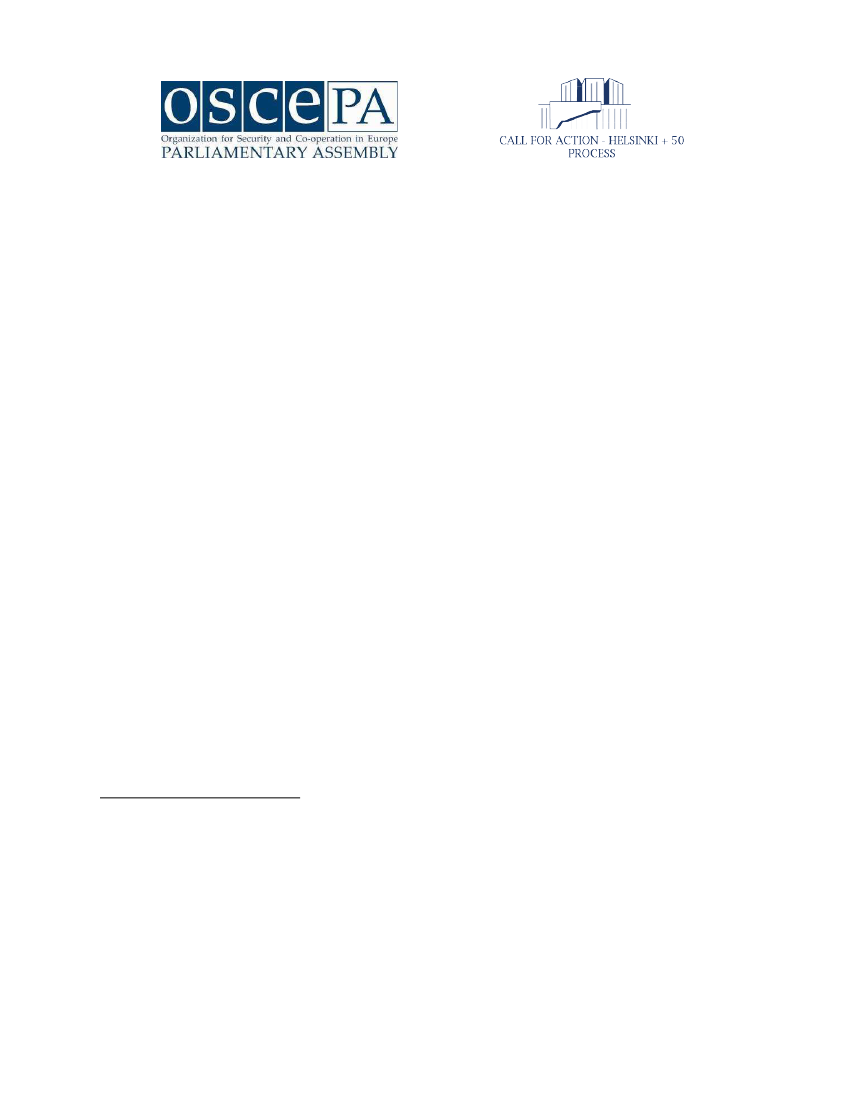
Highlights from OSCE PA event on «Enhancing the
Implementation of UNSCR 1325 across the
OSCE Region: Parliamentarians’ Contribution to
Women, Peace and Security»
1
Wednesday, 8 September 2021, 14:30 – 17:00 CEST, online
General points:
•
•
Observed slow progress
2
in women’s participation in all aspects of the conflict cycle since
the adoption of the UNSCR 1325 (2000);
Highlighted women’s active and meaningful participation in peace processes as a crucial
factor for ensuring stable and long-lasting peace, increasing the sustainability of post-conflict
peace settlement;
Highlighted the importance of continuous and effective development, financing,
implementation, update, and scrutiny of National Actions Plans (NAPs) on WPS by States
and their national legislatures, as an important tool for effectively attaining WPS and UN-
related Sustainable Development goals;
Pointed out the importance for incentivizing and actively engaging men as integral partners
for implementing the extensive WPS agenda, especially in shaping an inclusive attitude
change in their spheres of work/engagement/influence.
Emphasized the need for collection of quality, comparable and sex-disaggregated data, in
particular in the WPS scope of work, that would allow for gender-sensitive analysis and
•
•
•
The Highlights from the OSCE PA Call for Action - Helsinki +50 Meetings are not intended to be official
conclusions, nor an exhaustive list of all issues or suggestions raised during the debate, but rather a compilation of
points recorded for possible future reference. As this compilation is not exhaustive, any comments or suggested
additions are welcome.
2
1
As highlighted by the OSCE PA Special Representative on Gender Issues, Hon. Hedy Fry, the underrepresentation
of women across the conflict cycle is significant. According to her observations, women accounted for 6% of
mediators, 13% of negotiators and 6% of signatories in major peace-making processes between 1992 and 2019. The
Proportion of women in security, protection and police roles increased by a marginal 3% between 2015 and 2021,
currently accounting for 7,2% in total, while more than 4 out of 5 ambassadors involved in peacebuilding and in
negotiations are male.